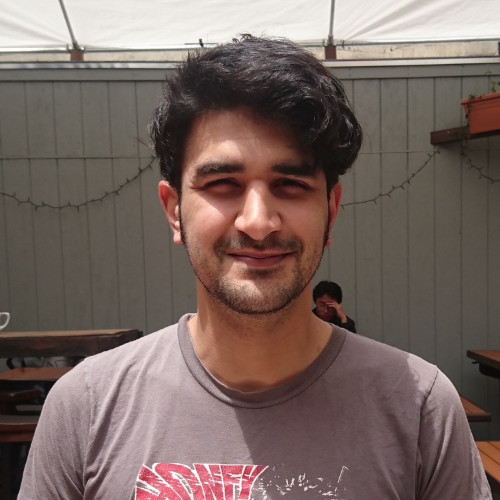Kurt Ballou: “Keeping an eye on the big picture, what’s exciting about music, is really crucial”
The Converge man and producer talks The Dusk In Us
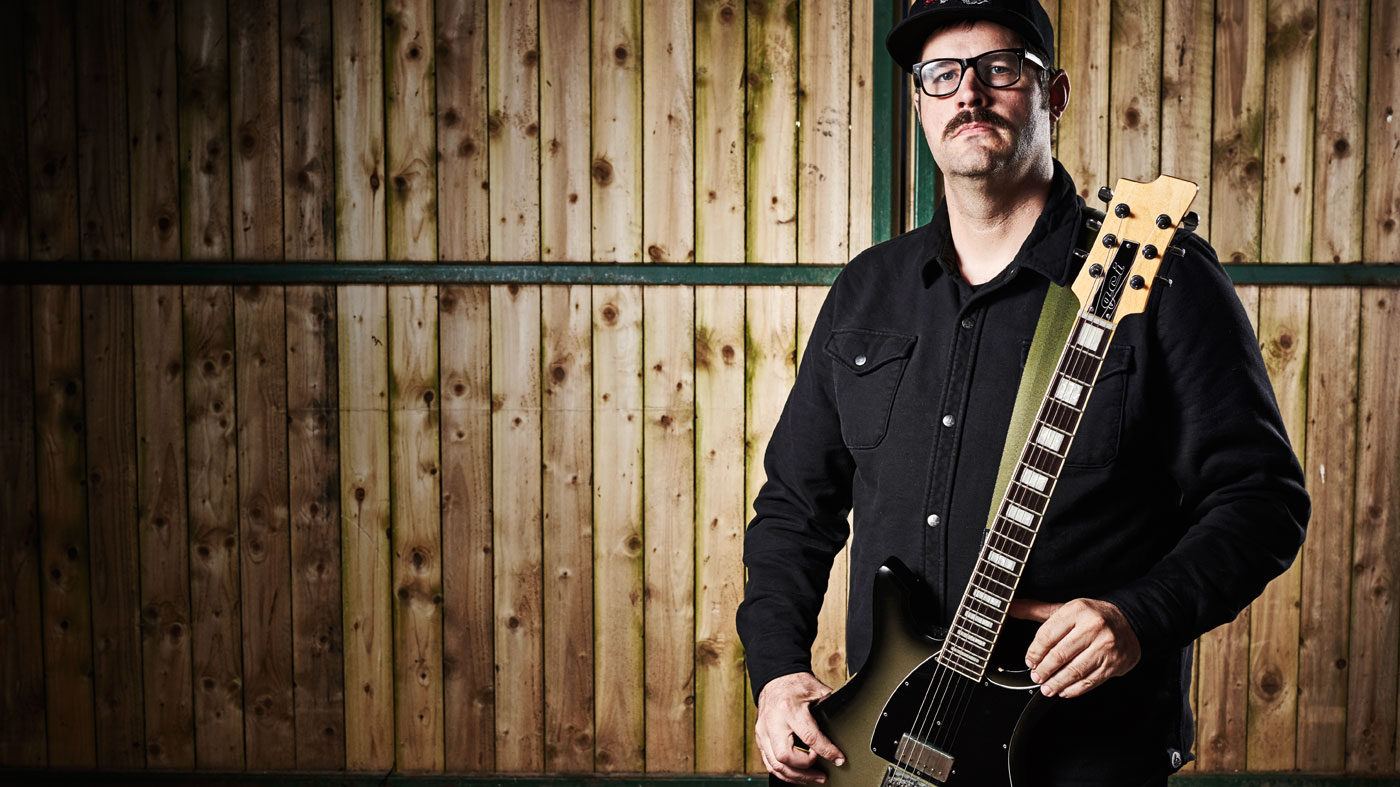
Want all the hottest music and gear news, reviews, deals, features and more, direct to your inbox? Sign up here.
You are now subscribed
Your newsletter sign-up was successful
Visionary songwriter and producer Kurt Ballou of Converge takes us on a whistle-stop tour of his new album, The Dusk In Us, his studio, God City, and his creative process...
Kurt Ballou may not be a household name, but his influence is far reaching. As the driving force behind metalcore pioneers Converge, he’s helped push heavy music in a new direction and in doing so he has cemented his importance for a new generation of musicians.
After being made redundant from his job as a biomedical engineer in the 90s, he dusted himself off and built God City Studios, which relocated in 2003 to Salem, Massachusetts, and has become a mecca for heavier underground artists.
One of his first recording projects was Cave In’s ’98 seminal LP Until Your Heart Stops, another album that helped define the sound of the-then embryonic metalcore scene. His more recent credits are no less impressive, including everything from Irish math-rockers BATS, to post-metal supergroup Sumac, breakthrough hardcore band Code Orange, Seattle doom-merchants Helms Alee, math-metal pioneers Dillinger Escape Plan and post-metal titans Russian Circles.
I don’t want to say this is a totally new direction for Converge, but the things we’ve done in the past, I think we’re doing better now
With such an enviable clientele, Ballou has charted a course through some of the most essential heavy recordings and sub genres of the last 20 years, and emerged on the other side, battle-scarred, yet still enthusiastic. If that CV wasn’t impressive enough, he’s also an accomplished DIY-er, whose hobby of building guitars and guitar effects has rapidly become a side business.
Last year, he released a new business card that went instantly viral in the gear community. The card doubled as the printed circuit board - or PCB - for an effect he had designed, the Brutalist Jr, which is based on one of his favourite pedals: the Providence Stampede.
With the news that Converge were returning with their fi rst album in five years, the brilliant The Dusk In Us, and playing the eclectic ArcTanGent festival on our doorstep, we had to meet the man and find out what makes this polymath tick...
Want all the hottest music and gear news, reviews, deals, features and more, direct to your inbox? Sign up here.
What changed for you with The Dusk In Us, and how does it sit in the overall Converge discography?
“It’s been so long since we’ve made a record, I think that’s what’s different about it for me. I’d forgotten about the process, how much work it is, how much effort it takes, how long it takes... I think I went into it with a certain idea of what I wanted it to be and then had to take some turns mid-stream in order to embrace what it is. I don’t want to say this is a totally new direction for Converge, but the things we’ve done in the past, I think we’re doing better now. I think we’re doing everything that we have done in the past on this record and more. I’m really happy with the songs.”
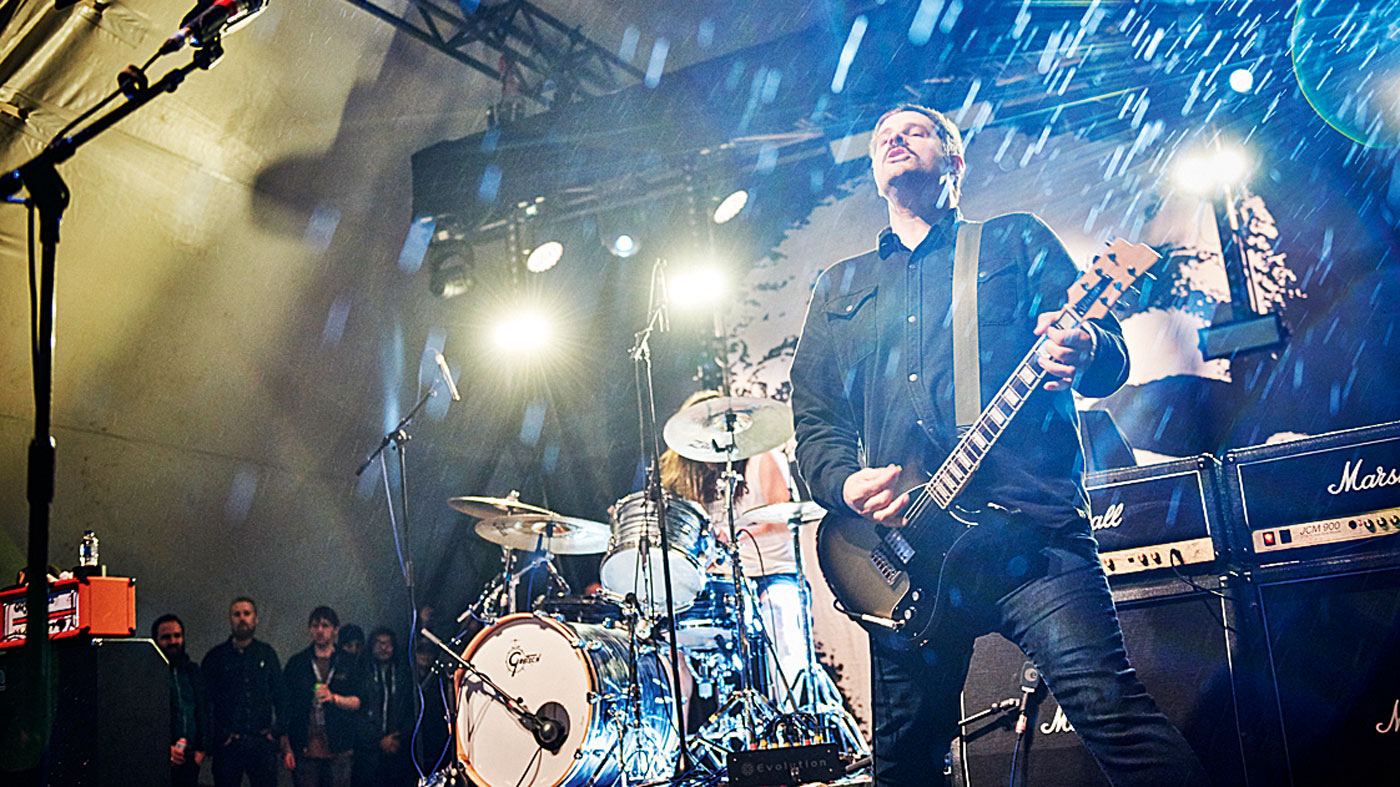
Reacclimatising
Was it a struggle to get into the flow of recording?
“Y’know, the time commitment was really noticeable to me this time, because I used to live above my studio in an apartment, and I used to be single, and now I have a family and I commute to work, so the amount of time that I’m able to be in the room obsessing over it is different than it was before. That may be a good thing!
“I may have obsessed over things too much in the past. I certainly belaboured songwriting; the songwriting on this record is much more collaborative, much more band-in-aroom than previous records. I feel like that is in many ways a function of the way in which our lives have evolved in the last fi ve years. Collectively, we’ve had six children in the past five years!”
Presumably this time restriction also had implications at the writing stage - was it a case of creativity being driven by limitations?
On this record, I was a lot better at just making a decision on the guitar tone when I was tracking it
“If you’re creative, you can capitalise on whatever situation you’re put in, whether that’s a change in physical space or a change in environment, a change in lifestyle, whatever. If you’re good at it, you can find a way to make that a strength or, even if it’s not a strength, you can harness that as a way to create something different to what you’ve created before... we’ve certainly done that on this record, both musically and lyrically, I think also the changing political climate in the States has caused the lyrics to evolve as well.”
The guitars on the new album sound more focussed than ever; was there anything you did differently this time around?
“The guitars are a lot less layered, so I think some of the detail and the nuance of the tones and the performances are more discernible, whereas previous records tended to be more of a wall of sound. One of my tendencies is always to say like, ‘Oh, I like the way this one sounds’ and ‘Oh, I like the way this one sounds too!’ and, ‘Oh, I also like the way this other thing sounds’ and before you know it, I’ve got like a 100 guitar tracks, whether it be a 100 different performances or a 100 different amps running at the same time. On this record, one thing I was successful in was being a lot better about just making a decision on the guitar tone when I was tracking it, and then not messing with it.”
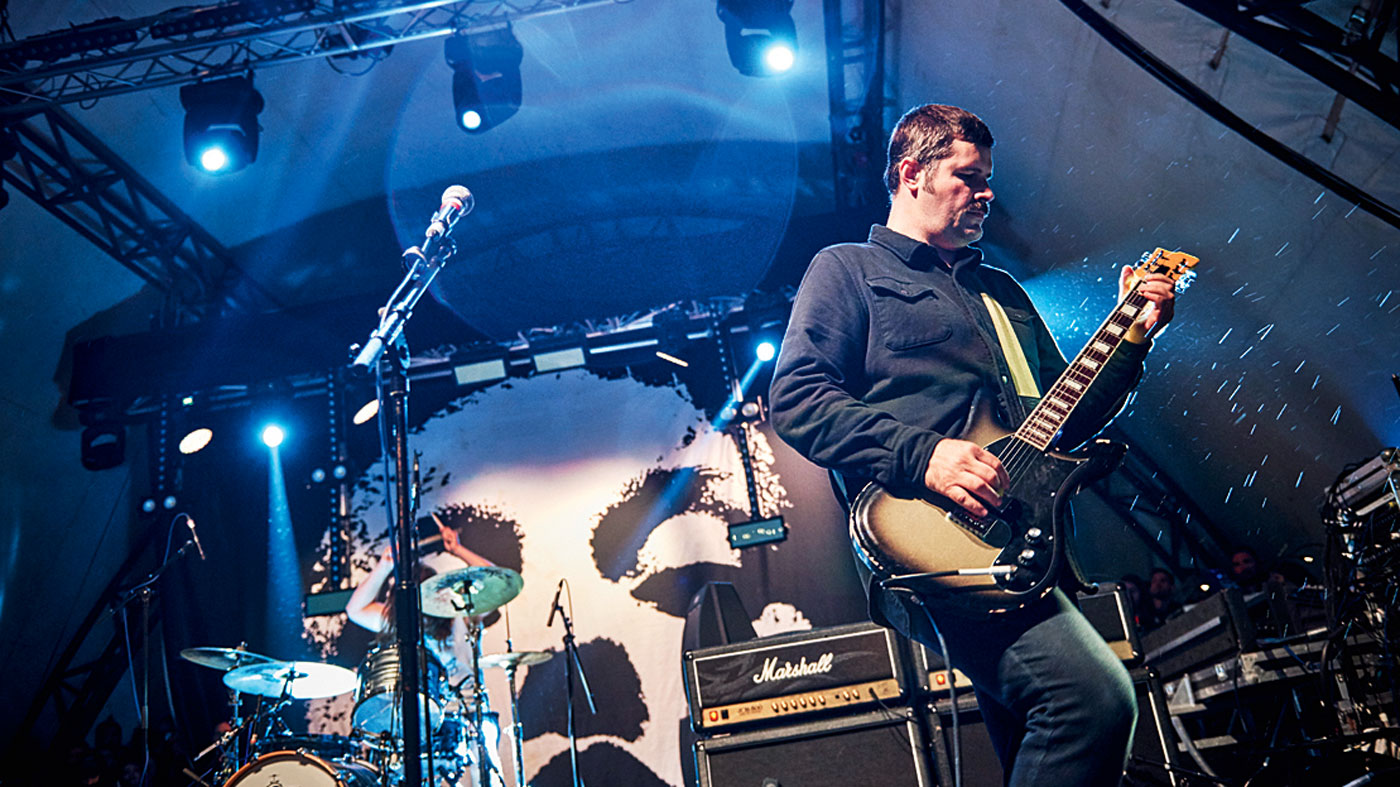
Tone zone
Since you were using fewer guitar tracks, how did you craft guitar tones that would fill out the mix?
“Most of the time it’s just two [tracks of guitars playing at once]. There’s not a lot of layered rhythm tracks; guitarwise the gain level is not usually different if I’m running multiple amps, it’s usually about the same gain level on each of them. If I’m blending amps, and there’s something characteristic about one amp, I’ll try to exaggerate that character when I choose a speaker, microphone, mic preamp and EQ strategy for that... if two amps sound really similar there’s kind of no point in blending them.
On most songs, there were four amps involved
“If one amp is great at being bright and articulate, and another amp is great at being heavy and sludgy, I might exaggerate the heavy on one and the articulation on the other and then blend those two together, maybe keep them on separate tracks so I can have some control over that in the mixing, but sometimes not even keep them on separate tracks.”
With that in mind, which amps made the cut on the new record?
“On most songs, there were four amps involved. There was a Marshall JMP that I recently had outfitted with new old stock Philips 6CA7 power tubes that really dramatically changed and improved that amp. That, an Ampeg V4, this weird one-off amp that I have that was made in Belarus called the Sparrow’s Son, which is high-gain, fairly bright and articulate - well, it can be low gain too - but it’s a pretty hot lead guitar amp.
“Then also a Gibson Titan combo, which is an odd 60s tube amp with a weird speaker cabinet that’s one 15" speaker and then two 10" [speakers]. That was the one that was used the least; the more noise-rocky songs had that... I tried to maintain some level of consistency throughout the record, so if I’m combining amps it might be that the Marshall is always on. And it might be the Marshall combined with V4 for some songs, Marshall combined with Sparrow for some songs, Marshall combined with Gibson Titan for other songs.”
It’s interesting that you’re almost always tonally blending different amplifiers. Does this change live?
“It’s definitely different live, because of two things; I’m trying to occupy the space of two guitar players live, whereas I can overdub when I’m in the studio, and live I have limited space on the pedalboard, so I need some sounds that work well for the entire catalogue. So live it’s less of a character piece than my studio tone; also, I tend to use more reliable, travel-worthy amps, whereas in the studio I can have weird old vintage things that I wouldn’t want to take on the road.
“There’s certainly more varied tone from song-to-song in the studio. And I can play louder in the studio... my usual go-to whether it’s live or in the studio is a medium-gain tube amp with a fair amount of mid-range to it and some sort of pedal in front of it, whether it’s a distortion, overdrive or EQ that basically boosts the signal, boosts the mid-range and rolls off sub-bass, just to tighten things up.”
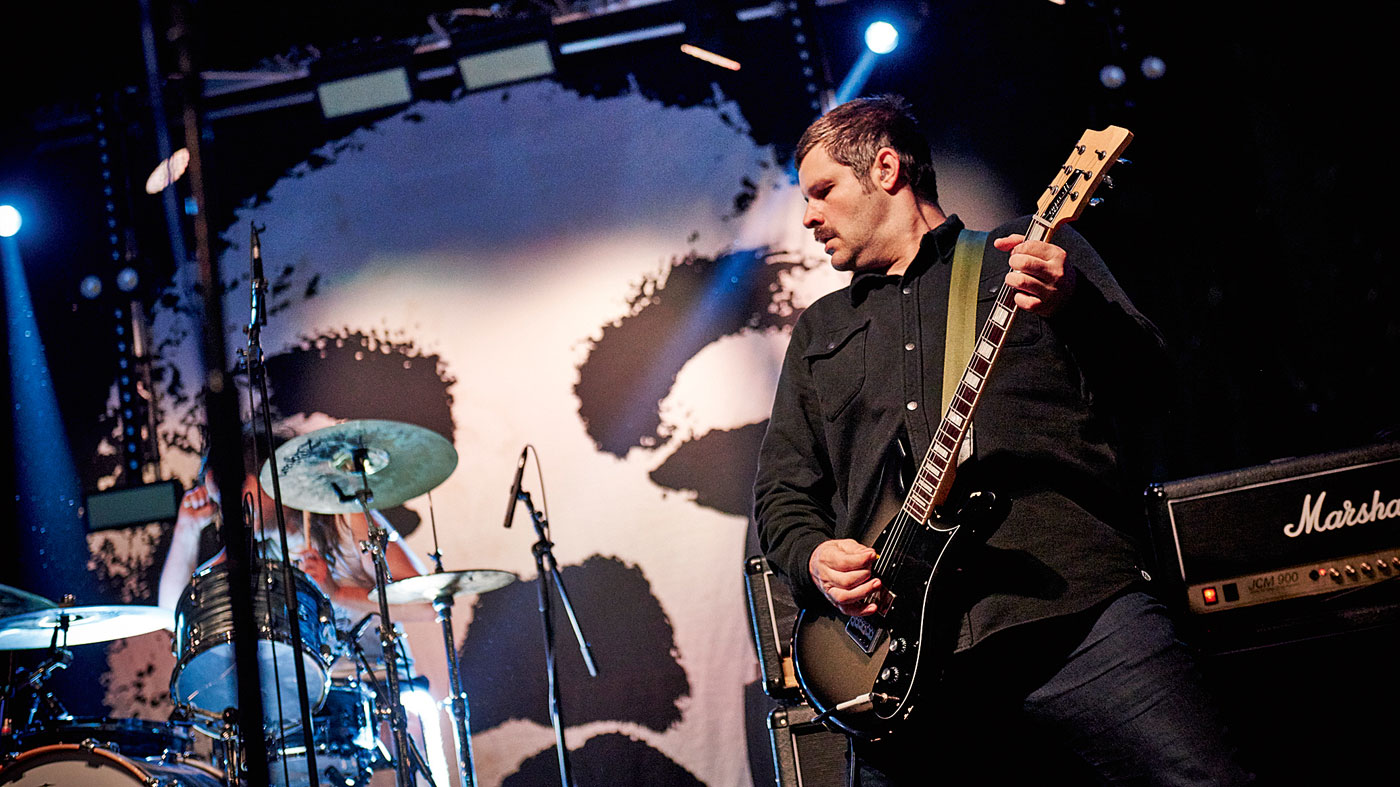
Arbitrary and necessary
Another thing you’re well known for is your career as an engineer and producer for other artists. Do you have a philosophy as a producer?
Any number of factors can make a recording a success or a failure, it’s a matter of identifying what is important
“Any number of factors can make a recording a success or a failure, it’s a matter of identifying what is important and what is not... working hard on music, especially [the] really detailoriented meticulous kind of music the way a lot of modern recordings are done, that’s really mentally draining. I know people that specialised for years in very detail-orientated, slick, data-entry Microsoft Excel-style recordings of metal records and they burned out after 10 years, and I’ve been recording for over 20.
“Keeping an eye on the big picture, what’s exciting about music and what’s necessary in a production is really crucial, and not allowing your mental capacity to be drained by stuff that doesn’t matter.”
Is that meticulousness or a knock-on effect of the technology that’s available?
“I think that the sort of ‘fix it in pre, fix it in post’ is a bit of a generational issue. I’m from the last generation of people for whom there wasn’t much in the way of home recording [growing up] and so when you enter the studio it was all analogue, big consoles and a high cost of entry into starting to record music. You had a limited number of tracks, so you had to get things sounding right on the way in.
“I’ve taken a lot of that with me... recording is life; imagine if you could go back and change every decision you’ve made? I’m sure there’s a thing or two here or there you’d love to go back and change, but imagine if you hadn’t made any decisions because if you go back and change one decision it affects every decision made after it?
“When you’re recording, in a lot of cases, you have to just make arbitrary decisions. When I get a drum sound, that informs the type of guitar sound, and when I record a guitar player, playing out of an amp and a pedal chain that they’re hearing and monitoring as they’re performing, that affects how that guitar player performs, and then that could affect the bass tone, or how I mix.”
What do you still love about music after all these years?
“I love that music has given me a focus in life and a direction, and a place to call home... it’s really everything.”
The Dusk In Us is out now on Epitaph.
Alex Lynham is a gear obsessive who's been collecting and building modern and vintage equipment since he got his first Saturday job. Besides reviewing countless pedals for Total Guitar, he's written guides on how to build your first pedal, how to build a tube amp from a kit, and briefly went viral when he released a glitch delay pedal, the Atom Smasher.


